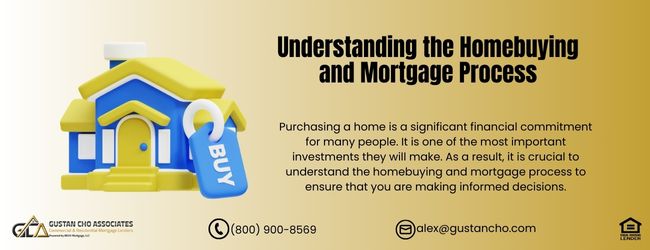Reverse Mortgage Lending Guidelines

This covers reverse mortgage lending guidelines. Most of our viewers reading this article are probably already familiar with the basic mechanics of how a reverse mortgage works. Homeowners with a lot of equity can borrow against that equity. Senior homeowners 62 years old and older with home equity may be eligible for reverse mortgages. Here is what John Strange of GCA Forums Mortgage Group says about reverse mortgage lending guidelines:
For all practical purposes, homeowners don’t have to make a mortgage payment every month. Sometimes, borrowers get a lump sum of cash when they take out the reverse mortgage.
Homeowners can get one lump sum of cash by tapping into their home equity with a reverse mortgage. The reverse mortgage proceeds are tax-exempt. You will never have to pay a mortgage payment going forward after you close on your reverse mortgage. Homeowners are still responsible for homeowners insurance and property tax.
Mechanics of Reverse Mortgage Lending
What most don’t understand the title mechanics of the Reverse Mortgage. A reverse mortgage lender like some borrowers and their families are concerned about what if the property is not taken care of. A reverse lender, like some of its borrowers and some of the borrower’s heirs, has other concerns. What if the borrower has to go in a nursing home?
Homes that need to modernized, or repaired are good candidates for home improvement contractors to make sales to. Seniors are often less capable of completing home improvement projects on their own than younger homeowners.
There are some home improvement contractors who are quite aware of this. Some of these home improvement contractors are unscrupulous and will take advantage of this fact. This is a big concern for a mortgage lender. Sometimes homeowners receive a monthly payment for as long as they live in the home. In the following paragraphs, we will cover qualifying for reverse mortgage Chicago and how reverse mortgages work.
Qualify For Reverse Mortgage Lending
Apply Online And Get recommendations From Loan Experts
How Reverse Mortgage Lending Affect Assets of Seniors
As seniors get older they may have to have assisted living and enter a retirement home. Many of these retirement homes are state run or are not covered by insurance companies. What happens then is the assets of the senior entering into assisted living arranges are attached by a nursing home or state assistance agency. This home may be the only, or the largest asset the senior has. A reverse mortgage allows homeowners to use home equity to take cash without selling their home or making a lender homeowner.
Importance of Understanding The Key Points of Reverse Mortgage
Key points about reverse mortgages is understanding the eligibility requirements by HUD require borrowers to have significant equity in their homes. Home Equity Conversion Mortgage (HECM) is the most common reverse mortgage. Other types include proprietary reverse mortgages and single-purpose reverse mortgage.
How Reverse Mortgage Lenders Gets Paid Back
With a reverse mortgage lending, you do not need to make monthly repayments. The reverse mortgage gets repaid when the borrower sells the home, moves out, or dies. At that point, the home sale proceeds repay the reverse mortgage. After paying the reverse mortgage lender, the proceeds from the remaining equity go to the homeowner or their heirs. Homeowners are still responsible for property taxes, insurance, and home maintenance. The amount homeowners can borrow through a reverse mortgage is based on your age, the appraised value, and current mortgage rates. The older the borrower’s is the more valuable your home is and the more you can borrow.
Net Tangible Benefits of Reverse Mortgage Lending
Reverse mortgages can come with various fees, including origination fees, discount points, credit reporting fees, appraisal fees, attorneys fees, title charges, mortgage insurance premiums, and closing costs. It’s important to understand these costs before proceeding. Borrowers are required to get a housing completion certificate from a HUD-approved counselor.
Proceeds can be used for covering living expenses, paying off existing mortgage debt, making home improvements, or simply having a source of income in retirement.
The HUD-approved housing counseling course ensures that you understand a reverse mortgage’s implications and obligations. Reviewing the benefits and negatives of a reverse mortgage lending and consulting a financial advisor or counselor before deciding is important. While it can provide financial flexibility for seniors, it also has long-term implications for homeownership and inheritance for heirs.
Reverse Mortgage Lending Guidelines
A reverse mortgage lender is quite aware of these two common situations that occur to seniors and their heirs. The home could be at risk. Reverse lenders are concerned with protecting the house. Ironically, the reverse mortgage lender refers to the appraisal of the home as the claim. In the end everyone comes to claim the house.
Liens on Reverse Mortgage Lending
A reverse mortgage lender actually puts 2 liens on the house. The first lien the reverse mortgages, the lender records on the house is for the maximum amount of principle loan amount that can be drawn against the property.
To over simplify the lien on your house by the mortgage lender, the lien against the property after you close on your reverse mortgage is pretty much your reverse mortgage.
The second lien the reverse mortgage records against borrower’s home is for the claim. So basically whatever the home appraises for the reverse mortgage lender records a second mortgage against the property for. As a matter of fact, they record the second lien for 110% of the claim amount or appraised value with a cap of $679,650.
Unscrupulous Contractors
So if the senior is the victim of an unscrupulous contractor or has to be placed in a nursing home, and these kind or any other kind of debtor tries to attach a lien to the borrower’s home, these creditors at the very best would be in 3rd position. What this means is their will be a 1st mortgage, and a 2nd mortgage on the property. Any lien thereafter will be in 3rd position.
A future creditor’s lien will be on a property with 2 liens recorded on it that are at 110% of what the property is worth. The 3rd, 4th, 5th, or 6th lien will have no equity position. Many would consider such liens worthless.
The senior will still have to cover their real estate taxes and pay their property insurance. However, any future creditor that try to place liens on the seniors asset or property will think twice. To learn more above HUD’s Reverse Mortgages, contact us at GCA Forums Mortgage Group at 800-900-8569 or text us for faster response. Or email us at gcho@gustancho.com.
Find A Lender For Your Reverse Mortgage
Apply Online And Get recommendations From Loan Experts
FAQ’s of Reverse Mortgage Lending
This is an all-encompassing FAQ about Reverse Mortgage Lending:
Frequently Asked Questions (FAQs) Regarding Reverse Mortgage Lending:
How do You Define a Reverse Mortgage Lending?
Reverse mortgaging is a lending product designed for seniors aged 62 and older. It allows them to convert part of their home equity into cash while maintaining property ownership. This kind of mortgage requires no monthly payments; instead, the amount owed gradually increases, and the mortgage is closed when the borrower relocates, transfers ownership, or dies.
Who Are the Candidates That Can Apply for Reverse Mortgage Lending?
Candidates must:
- Satisfy the age condition of being 62 or older.
- Own a home or equity rating of around 50% or more.
- Occupy the said property whose equity they want to purchase as the center of living.
- Fulfills necessary expenses for other ancillary expenses, including property taxes and homeowners insurance.
By What Name is the Reverse Mortgage Lending Commonly Known?
- Home Equity Conversion Mortgage (HECM): The Federal Housing Administration (FHA) ensures this is the most typical variety.
- Proprietary Reverse Mortgages: Private lenders offer these to households with pricey homes and are less restricted than HECMs.
- Single-Purpose Reverse Mortgage: These are usually extended by government agencies or local authorities affiliated or non-affiliated with non-profit organizations for a limited purpose, such as rehabilitation of a house or tax payment on a property.
How Does Reverse Mortgage Lending Work?
- In this case, the lender pays the client by utilizing the client’s home equity, either in one lump sum, monthly installments, as a credit line, or a combination of several.
- Interest is charged on the amount taken, and principal repayment follows only when the loan is due (e.g., on moving out of the premises, selling the home, or on death).
- To prevent default, the borrower must continue paying property taxes, homeowners insurance, or even maintaining the property.
Reverse Mortgage Lending – How Much Can I Borrow?
In this case, the amount varies depending on several factors:
- Home Value, the amount attached to your current home, can be up to an estimated amount higher than the appraisal amount; the potential borrowed amount is higher.
- Age of Borrower/s: In most cases, older borrowers qualify for other criteria that consider a person’s age.
- Interest Rates: the capital borrowing limits rise with lower interest rates.
- FHA Lending Restrictions also apply to these and HECM loans, as they limit the amount claimable to $1,149,850 (2024).
Reverse Mortgage – What Are the Payout Options?
These include the following disbursement options that the clients can exercise:
- Lump Sum: all proceeds can be paid at once, but this is only for those with a fixed-rate loan.
- Monthly Payments: clients can elect to receive a set amount periodically every month for a limited duration or only while residing in the home.
- Line of Credit: These funds can be borrowed as required, but the amount not borrowed during a specific time can be accessed later.
- Combination: A mix of the above options.
What Are the Costs Associated With Reverse Mortgage Lending?
Reverse mortgages also entail costs such as:
- Origination Fees: Heirs or Non-Borrowing Spouses can expect to pay a maximum of $6,000 on all HECM loans under this charge.
- Mortgage Insurance Premium (MIP): Roughly equals 2 percent of the price of a home in addition to annual charges of 0.5 HECM, which is the First Mortgage insurance fee
- Appraisal and Closing Costs: Costs associated with the appraisal, title, and closing services.
- Servicing Fees: Monthly loan management, often included in the loan’s total amount.
What Happens if I Outlive My Reverse Mortgage?
No loan repayments are required if you reside in the home for as many years as you want.
Furthermore, FHA-insured Home Equity Conversion Mortgages (HECMs) have a non-recourse provision, which means you or your estate are not obliged to make any repayments to the extent that the loan secured by the home exceeds its valuation market.
What Happens When the Loan is Overdue?
The loan is considered to be long overdue if:
The Home Has Not Been Occupied by the Same Borrower for Over 12 Consecutive Months.
The homeowner has decided to sell the property.
When a homeowner dies, the loan is usually paid off by selling the house. Any equity left over after the capital repayment belongs to the former homeowner or their beneficiaries.
Can My Heirs Inherit the Property?
Yes, your heirs can inherit the property but must repay the reverse mortgage balance. They can do this by:
- Selling the home and using the proceeds to pay off the loan.
- Refinancing the loan into a traditional mortgage.
- Paying the loan balance outright.
Can I Lose My Home With a Reverse Mortgage?
Yes, a reverse mortgage borrower can lose their home if they:
- Fail to pay property taxes or homeowners insurance.
- Do not maintain the home in good condition.
- They move out or no longer use the home as their primary residence.
Are Reverse Mortgages Safe?
FHA-Insured HECMs provide protections, including required counseling and non-recourse clauses. Borrowers should understand all terms and conditions to avoid misunderstandings, especially regarding repayment obligations.
Is Reverse Mortgage Counseling Mandatory?
Yes, for FHA-insured HECMs, the borrower must take the additional step of talking to a HUD-approved counselor to ensure they are aware of the specifications, costs, and obligations involved in the deal.
Can I Use a Reverse Mortgage to Purchase a Home?
Yes, the HECM for Purchase program allows borrowers to use a reverse mortgage to buy a more expensive or different home if they are willing to make a significant downpayment.
Who is Best Suited to Utilize a Reverse Mortgage?
The best reverse mortgage-eligible candidates include:
- Older adults who would like an additional source of income after retirement.
- Existing homeowners who plan on residing in their house without having to make monthly mortgage payments.
- Individuals who own a lot of equity with a comparatively low cash shortage.
What Options Can Serve as a Substitute For a Reverse Mortgage?
- HELOC methods involve taking out loans and taking out a line for equity. They could be cheaper, but they require a monthly fee.
- Downsizing to a more affordable house: Selling the existing property and purchasing a more reasonably priced alternative.
- Personal loans: however, these are unsecured.
Refinancing the existing property: This entails remortgaging the current property for a property with cheaper mortgage rates.
What Are the Risks of Undertaking Reverse Mortgage Lending?
- The loan’s value climbs up, which, in turn, reduces the equity of the rental.
- The refinancing rate diminishes the rental price, resulting in lower net profits.
- These other expenses, interest, and costs also add up to significantly higher amounts.
What Are the Tax Obligations That Come With Reverse Mortgage Lending?
Mortgage reverse loans don’t have to be taxed as they fall under the income category. Instead, they are seen as more of a transaction or operation. The interest amount, however, is loaned out and can only be realized once the mortgage is paid off.
How Do I Register Myself Online for a Reverse Mortgage?
Take the necessary time to endeavor to engage diverse lenders, as they are influenced by the methods used and the endorsement by HUD when applying for HECM. Are the standards of borrowing set in place by a lender?
- How do you find a reliable reverse mortgage lender?
- You can consult with a trusted financial advisor, and always remember to check the customer reviews and Better Business Bureau (BBB) ratings.
- Additionally, look for FHA-approved HECM lenders.
- It has more than HECM lenders, and HECM lenders are happy because they are well-informed about how to appraise items of value.
- Furthermore, expecting the appraiser to find a house and add the value is unrealistic since the appraiser has already sold the house.
The last thing you want to do is end up with someone you won’t agree with, and after someone contests, they sanction the loan. Appraising property is not a preferable situation because their rating may be unjust.
Start Your Process Towards Buying A Home
Apply Online And Get recommendations From Loan Experts






Responses